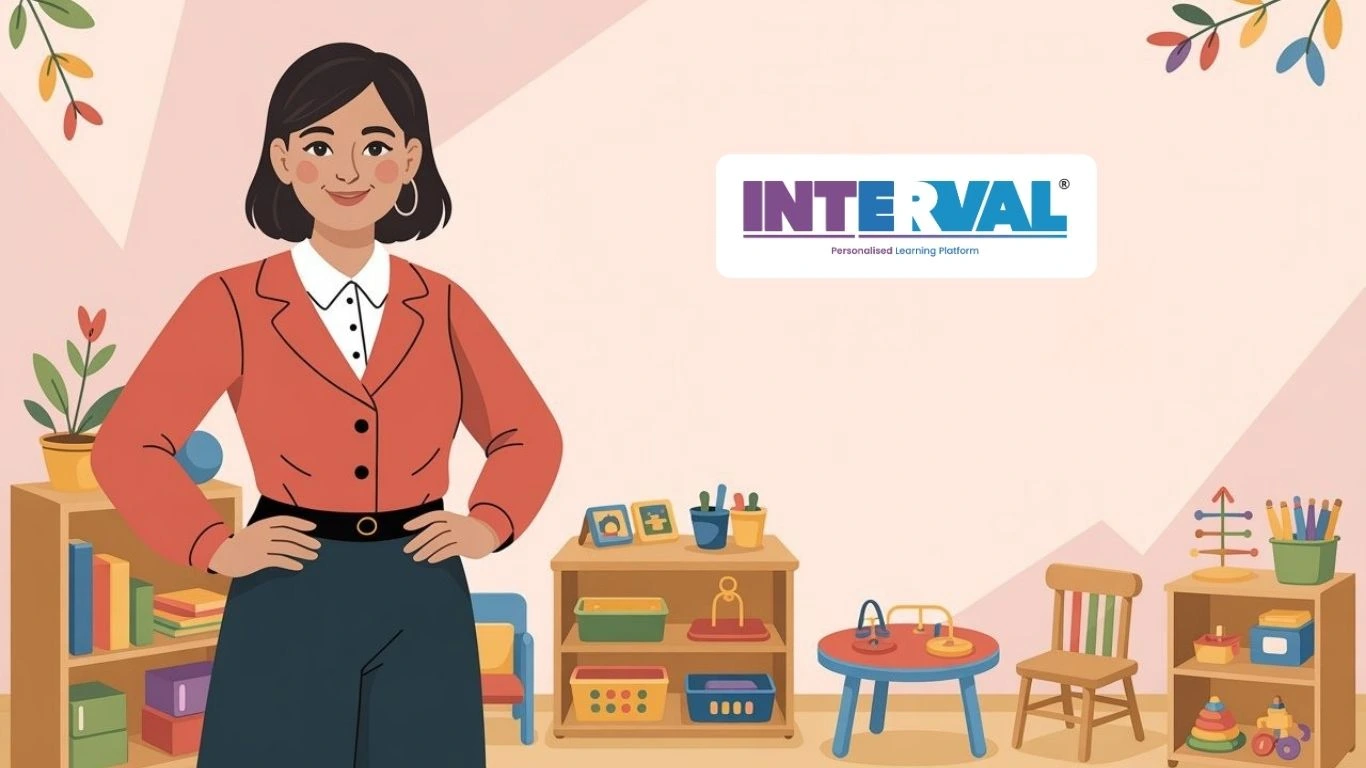How to Start Your Own Montessori School After Training: Step-by-Step Guide 2025–26




Starting a Montessori school is one of the most meaningful and rewarding paths for anyone passionate about early childhood education. Many trained Montessori teachers in India today are moving from educator to entrepreneur, launching their own centres, home-based preschools, or community learning spaces.
If you have completed, or plan to complete, your Montessori Teacher Training Course (TTC) and are wondering how to start a Montessori school in India, this guide will walk you through every essential step in a clear and practical way.

If you’re beginning your journey, Interval Learning’s Montessori Teacher Training Course can help you build the knowledge and confidence needed to become a successful Montessori educator or school owner.
Montessori education focuses on independence, hands-on learning, exploration, and emotional development. Many parents today prefer Montessori over traditional preschool methods because it supports:
This rising preference has opened opportunities for trained teachers to take the next step and become Montessori entrepreneurs. If you want to transition from Montessori teacher to entrepreneur, now is the right time.
Below is a structured and easy-to-follow action plan to start a Montessori preschool after TTC.
The first and most important step is completing a recognized Montessori Teacher Training Course. Proper training helps you:
Build confidence to run a centre independently
If you want authentic training that prepares you for real classroom scenarios, explore Interval Learning’s Montessori Teacher Training Course, ideal for aspiring school founders.
Before finalising your preschool plan, study your area:
This will help you position your preschool differently and highlight what makes your approach unique.
A business plan gives direction to your Montessori preschool and helps you stay organised during setup. It should clearly outline:
A well-written business plan helps you stay on track and reduces confusion during the launch stage.
Interval Learning’s Montessori training includes structured modules that help future educators understand curriculum planning—something essential for school owners.
Unlike mainstream schools, preschools in India do not need central board affiliations. However, you must complete local-level registrations and compliance:
Legal compliance builds trust among parents and helps you operate smoothly.
Location is one of the biggest factors that influence parents while choosing a preschool. Select a place that is:
Good location planning ensures a positive environment for children and builds parent trust from day one.
The Montessori classroom is called the “Prepared Environment,” designed to help children learn independently. Key elements include:
A well-designed Montessori environment supports concentration, curiosity, and confidence.
Your staff is the heart of your school. Montessori environments require calm, trained educators who understand child psychology and observational techniques. For your team:
Strong staff training ensures a consistent and high-quality learning experience for every child.
Even the best preschool needs effective communication to reach parents. Your marketing plan should include:
A strong admissions strategy helps create a steady flow of enquiries and builds your brand image.
Interval Learning also equips Montessori trainees with practical knowledge that enhances their professional profile, useful when launching your own preschool.
Before your preschool officially opens, establish systems that ensure smooth day-to-day running:
Efficient operations build parent confidence and help your preschool maintain a professional reputation.
Many Montessori teachers in India have launched successful preschools after gaining confidence through TTC. Some start with:
As demand grows, they gradually expand into full-fledged Montessori schools.
This proves that you don’t need a large budget to begin—you need the right training, planning, and dedication.
If you are exploring Montessori teaching as a career or planning to start your own preschool, you may also find these guides helpful:
These articles provide deeper insights into training options, career growth, and real experiences—perfect for anyone preparing to become a certified Montessori educator or preschool founder.
With the right mindset, a Montessori-trained teacher can build a strong identity as an educator and entrepreneur.
Dreaming of starting your own Montessori school? Begin your journey with Interval Learning’s Montessori Teacher Training Course. Learn authentic methods, gain real skills, and become industry-ready.
At Interval Learning, we make it simple for you to build a strong career in early childhood education. Our flexible online classes, expert trainers, curated Montessori curriculum, and globally recognized certificate ensure you gain the confidence and knowledge needed to teach effectively or launch your own preschool.
Whether you’re from Kerala, Tamil Nadu, Karnataka, Maharashtra, the Gulf, or any part of India, Interval Learning offers accessible and structured Montessori training designed to meet your goals.
Start by completing Montessori training, preparing a business plan, choosing a location, meeting legal requirements, setting up a Montessori environment, hiring trained staff, and launching admissions.
Yes. A Montessori Teacher Training Certificate (TTC) helps you deliver authentic Montessori learning and builds credibility among parents.
Yes, many school founders in India begin with a Montessori TTC and then expand through workshops, internships, and practical experience.
It depends on the model. Home-based centres: low investment Full preschool setup: moderate to higher investment (rent, materials, staff)
Yes, many educators start home-based Montessori classrooms with small batches. It’s affordable, easy to manage, and ideal for beginners.
Interval Learning offers flexible online classes, expert trainers, structured modules, practical activities, and a globally recognized certificate suitable for aspiring Montessori educators and entrepreneurs.
Yes. The course covers Montessori philosophy, teaching methods, classroom setup, observation techniques, and practical guidance—helping future school owners build strong foundations.
Yes. Learners receive ongoing guidance, professional support, and updates that help them grow as educators or preschool founders.